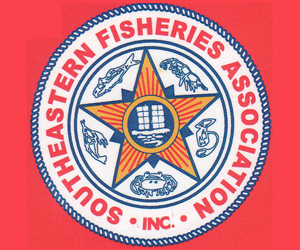May 17, 2018 — The following was released by the Southeastern Fisheries Association:
The American Sportfishing Association and other anti-commercial fishing groups told Congress that anglers only get 3% of the fish. They lie!
From the Virginia/North Carolina border through the Florida Keys, see how many pounds of fish are allotted for the non-fishermen?
SEE HOW MANY POUNDS OF FISH ARE ALLOTTED FOR THE SPORT-FISHERMEN?
Is it legal to take so much fish away from non-fishing citizens?
National marine manufacturers, foreign outboard motor, gear, electronic companies and anglers clubs are pushing to privatize federal fish resources exclusively for sport fishing.
The following data is derived from NOAA’s listing of the Allowable Catch Levels (ACLs) for each of the following species. View the source material in its entirety here.
WHO GETS THE FISH NOW?
| FISH Species | #’s Non-fishing Consumers (Commercial) | Anglers |
| Atlantic Spade Fish | 150,552 | 661,926 |
| Bar Jack | 13,228 | 49,021 |
| Black Grouper | 96,884 | 165,750 |
| Blueline Tile | 87,251 | 87,277 |
| Cobia NY to GA | 50,000 | 620,000 |
| Cobia East FL(Gulf) | 70,000 | 860,000 |
| Deepwater Complex | 131,628 | 38,628 |
| Dolphin | 1,534,485 | 13,810,361 |
| Gag grouper | 335,188 | 348,194 |
| Golden Tile | 313,310 | 2,187 (Number of Fish) |
| Grey Trigger | 312,324 | 404,675 |
| Grunts | 217,903 | 618,122 |
| Hog Fish NC-GA | 23,456 | 988 (Number of fish) |
| Hog Fish FLK-EFL | 4,524 | 18,617 (Number of fish) |
| Jacks | 189,422 | 267,799 |
| Mutton | 104,231 | 768,857 |
| Porgies | 36,348 | 106,914 |
| Red Grouper | 343,200 | 436,800 |
| Red Snapper | 0 | 0 |
| Scamp | 219,375 | 1,169,308 |
| Shallow Grouper | 55,542 | 48,648 |
| Snapper (Exclud. R Snapper) | 344,575 | 1,169,308 |
| Snowy Grouper | 144,315 | 4,983 (Number of Fish) |
| Vermillion Snapper | 862,290 | 406,080 |
| Wahoo | 70,542 | 1,724,418 |
| Wreckfish | 385,985 | 20,315 |
| Black Seabass | 755,724 | 1,001,177 |
| Greater Amberjack | 769,388 | 1,167,837 |
| King Mackerel | 5,900,000 | 10,900,000 |
| Spanish Mackerel | 3,330,000 | 2,727,000 |
| Yellow Tail Snaper | 1,596,510 | 1,440,990 |
| Total Allocations | 17,912,450 | 40,000,785 |

